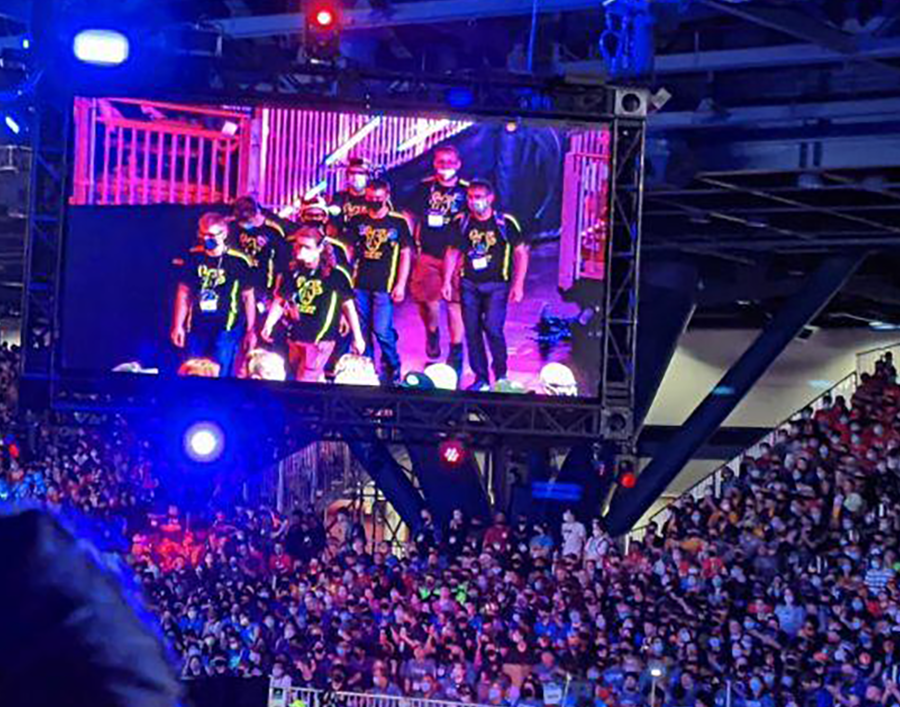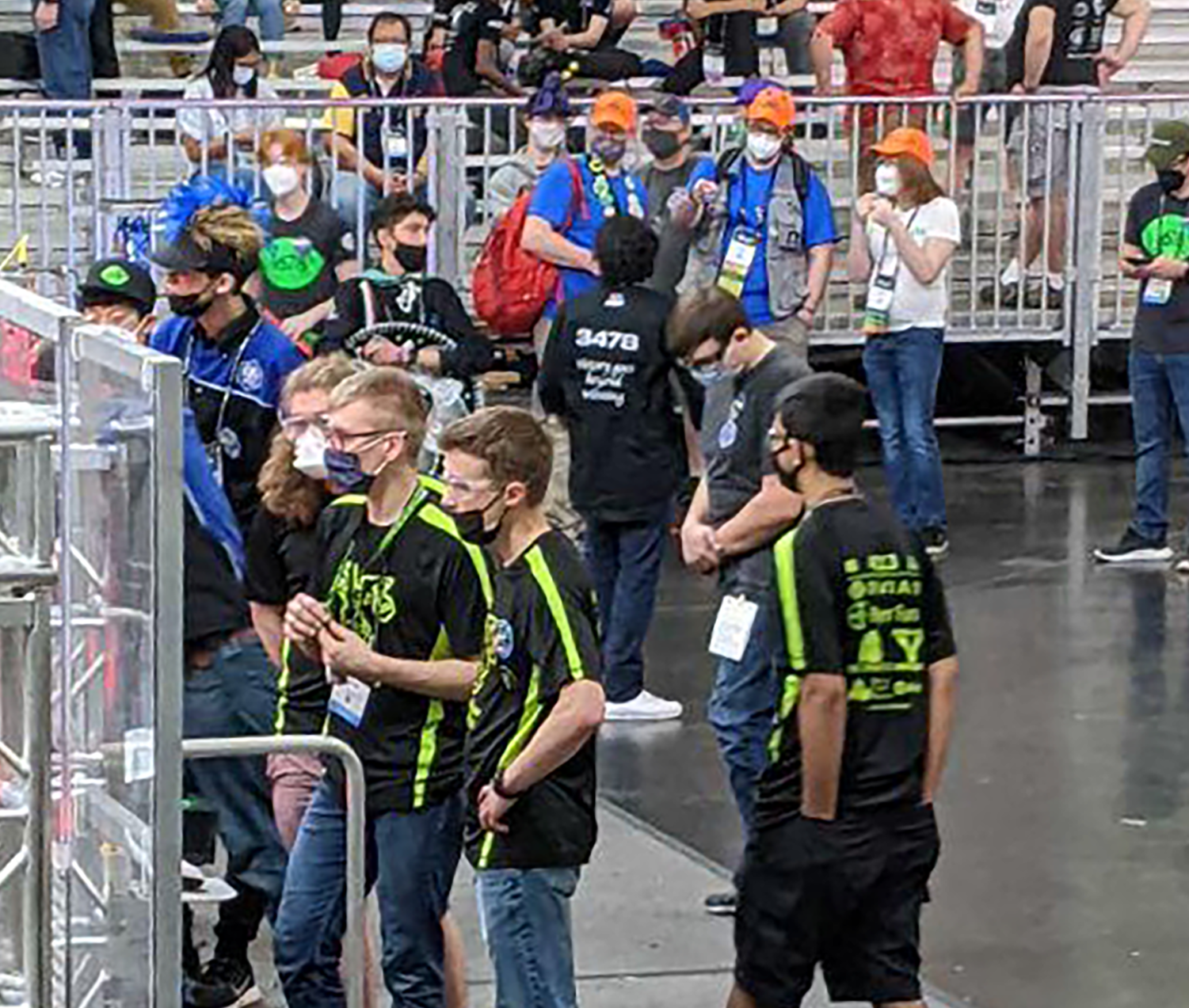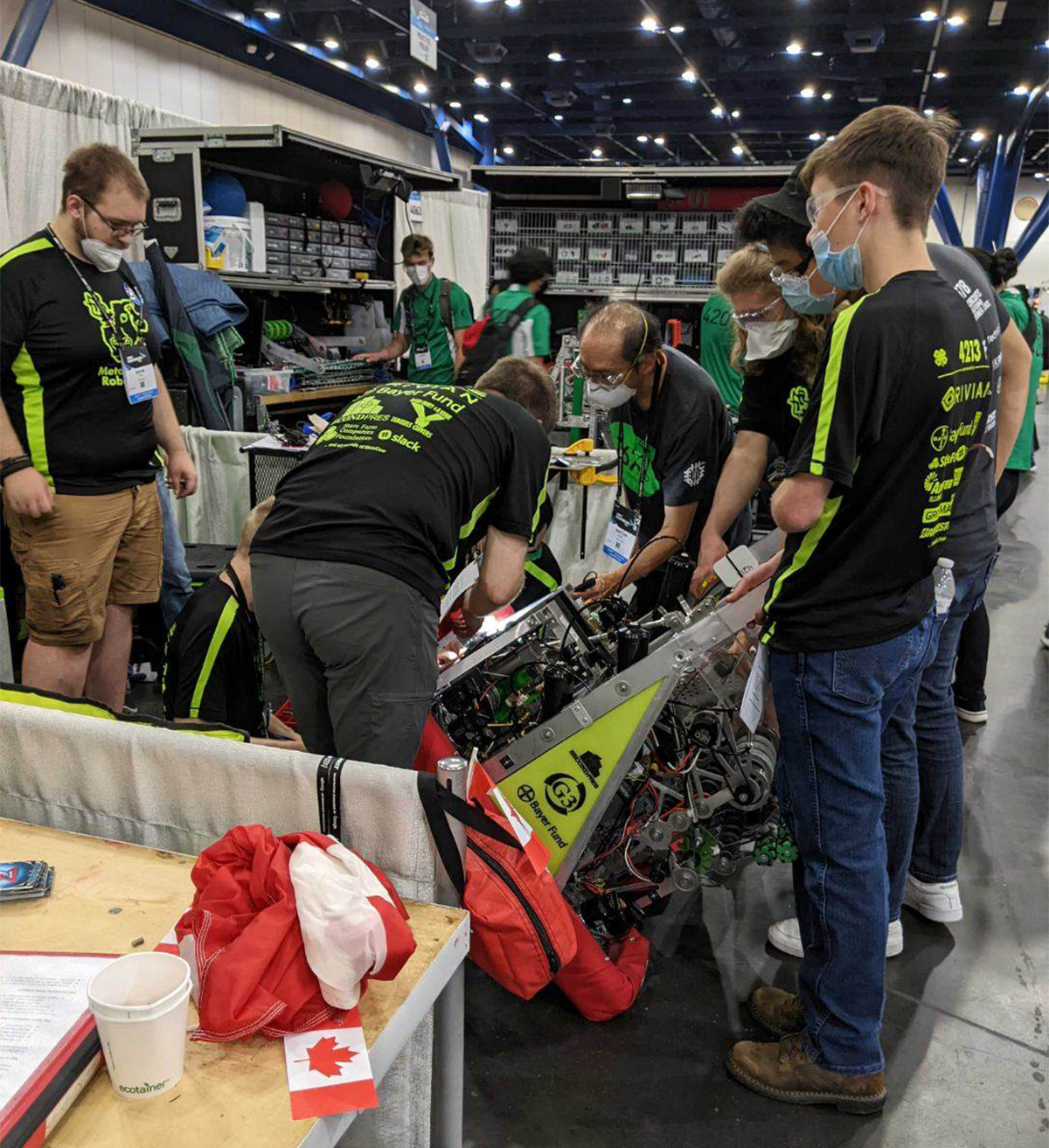IF YOU SHARE THE INKSPOT'S PASSION for empowering Normal Community's aspiring journalists and equipping them with viable and valuable digital media skills, please consider contributing to our cause.
Your support plays a vital role in enabling the Inkspot to invest in top-tier equipment, maintain memberships in distinguished professional organizations such as the Journalism Education Association and National Scholastic Press Association, send our students to compete at state and national contests, and attend the National High School Journalism Convention.
Your generosity is the key to providing these students with a truly enriching educational experience. THANK YOU.
Feb 14, 2023
A buzzer echoes throughout the stadium, only 30 seconds of the match remain — the countdown ticking away on the Jumbotrons suspended above the audience.
The six robots in the arena make their final, frenzied plays — racing around the game floor, launching rubber balls into an eight-feet high hoop, extending mechanical arms that latch onto metal monkey bars in an effort to levitate above the ground — in hopes of securing a victory.
When a second buzzer rings, indicating that gameplay is over, the teams drop their controllers, look up to the Jumbotrons and…
The crowd erupts, cannons blast confetti rain, triumphant music begins to soar.
To Gokul, the air feels “electric.”
Part of what makes that feeling so special is its brevity, as each round of FRC play — consisting of autonomous and driver-controlled portions — lasts a mere 150 seconds.
Over the course of the four-day weekend, of 16 rounds of competition, MetalCow spent just 40 minutes competing on the game field.
Even before Worlds, the team spent hours, days, weeks in their workshop — hunkered down in an effort to create the robot of their dreams.
But housing MetalCow — a team that requires the space for the consistent use of power tools, laptops, thousands of bolts and nuts — is not easy.
The sheer size of their workshop needs has displaced the team with some frequency.
Over the past four years, the team has moved three times: from a workspace in Rivian’s manufacturing plant, to the basement of 2nd Presbyterian Church, to warehouse space within Normal Gadgets.
This nomadic lifestyle means that MetalCow’s workshop isn’t defined by an address. Rather, the consistent sights, sounds, and community of the team that follows MetalCow wherever it goes is what provides students with a sense of belonging.
From the smell of freshly cut wood used to create prototypes, to coders debating the merits of Java programming, to the tings of hammering metal with utmost care to craft the robot’s test frame and apparatuses — “complete, organized chaos” is how Gokul describes it.
When he thinks of the workshop, the “shrieking, metallic” noise of the chop saw — an 18-foot, hand-operated saw — is the first thing that comes to mind.
“My first day at MetalCow, I [walked] in…first sound I hear? Saw cutting through metal,” Gokul said.
He was hooked.
While at first, the sound was intriguing and foreign, as Gokul spent more time in the workshop that day, and later on in those initial weeks, he grew accustomed.
“That sound never changes…it’s [become a] very familiar sound, very calming,” Gokul says. “I’ve gotten used to it, and now [it] just signals, ‘Okay, robot time.”
That opportunity — “robot time” — is something Gokul had long been looking for.
Gokul, who self-taught himself coding in fifth grade, first became interested in robotics after being amazed by a motorized wheelchair in action.
Desperate to discover the inner workings of the machine took him down a “rabbit hole of Google searches,” Gokul said, and he quickly fell in love with robotics.
Yet, despite these passions, Gokul could never find a place to explore them in town — until MetalCow.
At MetalCow, Gokul found himself among teammates that were just as enthused by robotics as he was — if not more.
One such teammate, is former MetalCow Vice President and Community alum Dhruv Rebba (’22), who was introduced to the team during one of its community showcases at the McLean County Fair.
There, Dhruv was given the opportunity to drive a robot for the first time. It was an experience he never forgot.
“I’ve wanted to be on [MetalCow] since I was little,” Dhruv said, “because most high schoolers don’t code in Java and work in a team to make robots. That’s what drew me in.”
Even through an “off season” during the pandemic, when the team took hits to its membership and recruitment, it was the “hard fun” — a term coined by award-winning coach and FRC legend, Mike Corsetti — that kept Dhruv coming back for more.
To Dhruv, this “hard fun” is the joy of problem solving.
”Most of the time, none of us, even the coaches, know the answer,” he said, “so we have to figure it out on our own… through Google, trial and error, [or] seeing what other teams are doing.”
Dhruv’s experience with MetalCow also allowed him to explore his passion for Computer Science — the program he’s now majoring in at the University of Arizona.
Understanding the impact the team had in cultivating his interests in STEM, Dhruv continues to encourage other students to join the team.
“Whenever there are people who are interested in STEM, I try to recommend MetalCow,” Rebba said, “[but] it’s usually the time commitment that scares them off.”




